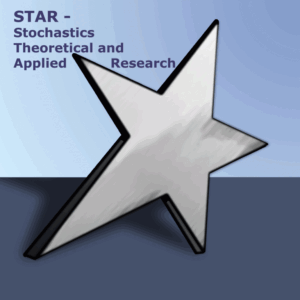
- This event has passed.
Optimal Transport, Statistics, Machine Learning and moving in between
Sep 5, 2022 - Sep 9, 2022
Part of the YES workshop series
Click here for the program: YES2022_program
For the tutorial slides see the table below.
Summary
Theory and Computational Aspects
In the last 30 years, the theory of Optimal Transport has emerged as a fertile field of inquiry, and a diverse tool for exploring applications within and beyond mathematics, in such diverse fields as economics, meteorology, geometry, fluid mechanics, design problems, theoretical chemistry, and engineering. More recently, due to unexpected connections, for instance with Data Sciences and Statistical Inference, theoretical and computational aspects of Optimal Transport regained substantial attention from both theorists and practitioners.
Optimal Transport principles have been applied very recently in formulating solutions to problems in the area of statistical inference, and numerous machine learning problems such as generative learning, transfer learning, distributionally robust optimization, and so on, with impressive results.
From a statistical point of view, transportation distances are very appealing since they quantify in a natural and meaningful way the notion of perturbations of a probability distribution (so are particularly suitable when considering mixture distributions). From a machine learning point of view, Wasserstein distances provide a very good way to compare two instances, by quantifying how much one needs to “warp” one instance to reach the other (for example, to measure similarities between images). Moreover, Optimal Transport methods have had a significant impact in the theory of nonlinear PDEs, in metric geometry, and in the development of functional inequalities.
Despite all these successes, Optimal Transport Methods in Machine Learning and Statistical Inference have been not exhaustively explored, which makes discussion on the topic among experts in the field very timely. In fact, it would allow us to build new bridges between PDEs and Statistics via the discovery of new connections with Optimal Transport.
Goals of the workshop: The goals of this workshop are to:
- facilitate and promote dialogue and cross-fertilization between theoreticians/practitioners in the field of Statistics and Optimal Transport;
- provide a natural entry point for junior researchers to get acquainted with this broad field of research.
In light of the above and the unarguable interdisciplinary aspect of optimal transport research, the time is ripe to foster and promote the development of a community that thrives at the intersections of statistics, analysis, and machine learning.
Program Description: this workshop is part of the series of Young European Statisticians (YES) workshop series, but with a broader scope. The event consists of two intertwined parts:
(I) School (days 1-3): during that period the program will consist of introductory and more advanced lectures given by experts from different fields, with the goal of equipping young researchers with basic-to-advanced mathematical tools in statistics and optimal transport.
Confirmed mini-course speakers are:
| Marco Cuturi
Slides: Cuturi_YES_2022 |
CREST – ENSAE, Apple ML Research |
| Jonathan Niles-Weed
Slides: Niles-Weed_YES_2022 |
New York University |
| Yoav Zemel
Slides: Zemel_YES_2022 |
University of Cambridge |
(II) Workshop (days 3-5): a workshop format featuring talks given by a mix of young and senior researchers on recent developments at the interface of statistics and optimal transportation. Topics include (but are not limited to) statistical inference, concentration inequalities, Wasserstein barycenters, and computational aspects.
The overall event will (not exclusively) target a broad audience of early-stage mathematicians (postdoctoral researchers, Ph.D. students, and advanced master level students), as well as more senior and established researchers.
Confirmed invited speakers are:
| Valentin de Bortoli | CNRS |
| Chin-Wei Huang | Microsoft Research – Amsterdam |
| Anna Korba | ENSAE |
| Axel Munk | Universität Göttingen |
| Alberto Gonzalez Sanz | Université Toulouse Paul Sabatier |
| Alexandra Suvorikova | Weierstrass Institute |
Contributed Presentations
Participants will be given the opportunity to present their current work during the workshop by giving a short talk (or by presenting a poster if we receive too many quality solicitations). If interested, please email a title and short abstract (max. one page) to “ot dot ml dot stats at gmail dot com”, where dot and at should be suitably replaced. Please send your title and abstract before August 20!
Registration
Registration for the workshop is compulsory. Click here to register. If you would like to speak or present a poster please email a title and short abstract (max. one page) to “ot dot ml dot stats at gmail dot com”, where dot and at should be suitably replaced. Please send your title and abstract before August 20!
Sponsors and Financial Support



Organizers
- Rui M. Castro (TU/e)
- Augusto Gerolin (University of Ottawa)
- Johannes Schmidt-Hieber (University of Twente)
- Oliver Tse (TU/e)
Practical Information
All you need to know for your visit to Eindhoven: Practical information
